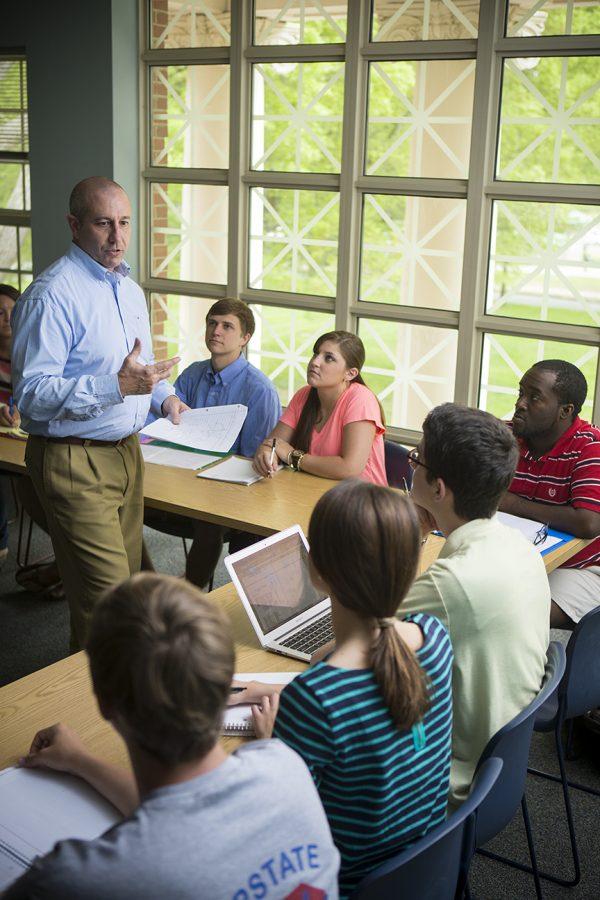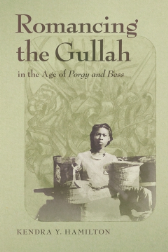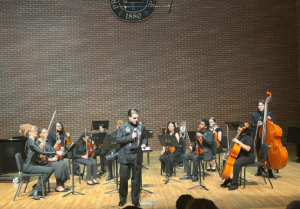10 Reasons to Love PC
Classes
September 20, 2013
Over the last three and a half years I have served on Senior Faculty Council (SFC), a committee that works closely with the campus leadership team and thus gains a bird’s-eye view of many problems – perceived or real – at Presbyterian College. The years have been volatile, frightening and fraught with difficulties. The squall has been intense, our ship has taken on water; and like sleepless crewman squinting at the horizon, the SFC is unsure whether the storm is passing.
But at the moment we’re experiencing a bit of a lull, and as I sat and wondered this morning over a cup of coffee whether this blissful abeyance is too good to be true, an entirely unsolicited wave of gratitude swept over me: I’m actually glad to be here, I realized, and in that sanguine moment set about composing a list of reasons we all should be grateful for PC. As I started explaining these reasons, morning turned into afternoon, and lo, the longest Bluestocking article ever was born. But long as it is, the list is by no means complete. And so I ask as a favor that you add to my list using the comment section below. Let’s celebrate the PC we love by giving a shout-out to those who need thanking. Also feel free to fact check and post mistakes in the comment section. I’d rather be proved wrong than wonder otherwise.
So without further ado… the list!
1. Athletics: Perhaps no endeavor has earned more faculty resentment than our plan to pursue Division I Athletics. The D-I questions that the faculty raise are valid: for the size of our college, D-I is wicked expensive, and we aren’t exactly flush in cash. Nevertheless, we should all celebrate what our enhanced athletic program has brought to this campus, much of it for an incredible bargain. Sure our teams get blown out more often than we’d like, but so do Crystal Palace and Stoke City, teams who nevertheless have incredibly loyal fan bases. When David slays Goliath, the poetry is oh so sweet, and let’s be fair: our athletes are slaying some Goliaths! They do it for less scholarship money, with more modest athletic equipment and facilities, and with much more rigorous academic expectations. Our athletes never play on a level playing field, yet win a fair number of games. In addition to the free, high-level sporting events available to everyone at PC, we all benefit from the community-building tailgates, the kid-friendly face painting booths, the pickup soccer game beside the D-I game, the athlete-staffed fun-run, the basketball summer camp. We demand a lot of our athletes, and they furnish an entertaining product.
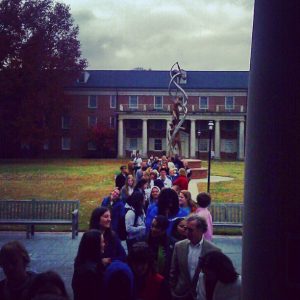 2. Dining: As the faculty advisor for the Bluestocking newspaper, I listen to and read many venomous critiques of dining options at PC. Why can’t we have a Chik-fil-a? Why must dinner end at 7pm? Why must all the food be so bad for you? As a college student many years ago, I asked many of these same questions—some things never change! Do typical college students have more choice than PC students? I imagine the answer is Yes… much more. But choice comes at a price—both a sticker price and a community price. In terms of a community, the more options you have, the more you spread out your community, and the less likely you are to experience a serendipitous, engaging conversation. Many of the most memorable chats in my life have taken place in GDH; as much as I love Starbucks, I have NEVER had a memorable conversation there. With respect to food quality, I would argue that GDH offers the best salad bar in town. I am astounded by the diversity of ethnic cuisines that show up on the vegetarian line and, in spite of my personal sanction on sugar, can’t help but scarf down those tantalizing desserts. No doubt all of us at PC could eat more healthily than we do, but the tools are at our disposal: PC gardens has the space, resources and know-how for making us all live more healthily. Our local organic gardener Daniel Parson donates time, expertise and plows; it’s time for the rest of us to roll up our shirt sleeves and tend our garden!
2. Dining: As the faculty advisor for the Bluestocking newspaper, I listen to and read many venomous critiques of dining options at PC. Why can’t we have a Chik-fil-a? Why must dinner end at 7pm? Why must all the food be so bad for you? As a college student many years ago, I asked many of these same questions—some things never change! Do typical college students have more choice than PC students? I imagine the answer is Yes… much more. But choice comes at a price—both a sticker price and a community price. In terms of a community, the more options you have, the more you spread out your community, and the less likely you are to experience a serendipitous, engaging conversation. Many of the most memorable chats in my life have taken place in GDH; as much as I love Starbucks, I have NEVER had a memorable conversation there. With respect to food quality, I would argue that GDH offers the best salad bar in town. I am astounded by the diversity of ethnic cuisines that show up on the vegetarian line and, in spite of my personal sanction on sugar, can’t help but scarf down those tantalizing desserts. No doubt all of us at PC could eat more healthily than we do, but the tools are at our disposal: PC gardens has the space, resources and know-how for making us all live more healthily. Our local organic gardener Daniel Parson donates time, expertise and plows; it’s time for the rest of us to roll up our shirt sleeves and tend our garden!
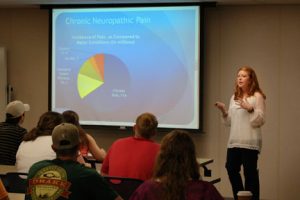 3. Research—Many students came to PC because they didn’t want to become a twelve-digit number in a classroom, where the professor’s only real concern was his research. I obviously applaud those of you who made this decision, but applaud with restraint, so as not to denigrate the importance of research. Research matters. It’s what connects the intellectual issues of our conversations to the real world. But before you get the idea of transferring to USC to do research, let me add that there are many different kinds of research out there; for the average 18-22 year old undergraduate, PC offers a far superior research environment than what you’d get at a state university. Our research projects, after all, are designed and customized for undergraduates. For obvious reasons, graduate students get most research positions at major universities. When undergraduates are involved, they often are doing relatively mindless photocopying or other routine chores. Consider that at PC, students who propose a viable research project with a faculty member receive free housing and a stipend for a project that often leads to vocational epiphany! Moreover, they work one-on-one, or as part of a small team, with the lead researcher! Summer Fellows is one of PC’s best-kept secrets. Such career-building opportunities are reserved only for the very top undergrads at big universities; we offer it to everyone.
3. Research—Many students came to PC because they didn’t want to become a twelve-digit number in a classroom, where the professor’s only real concern was his research. I obviously applaud those of you who made this decision, but applaud with restraint, so as not to denigrate the importance of research. Research matters. It’s what connects the intellectual issues of our conversations to the real world. But before you get the idea of transferring to USC to do research, let me add that there are many different kinds of research out there; for the average 18-22 year old undergraduate, PC offers a far superior research environment than what you’d get at a state university. Our research projects, after all, are designed and customized for undergraduates. For obvious reasons, graduate students get most research positions at major universities. When undergraduates are involved, they often are doing relatively mindless photocopying or other routine chores. Consider that at PC, students who propose a viable research project with a faculty member receive free housing and a stipend for a project that often leads to vocational epiphany! Moreover, they work one-on-one, or as part of a small team, with the lead researcher! Summer Fellows is one of PC’s best-kept secrets. Such career-building opportunities are reserved only for the very top undergrads at big universities; we offer it to everyone.
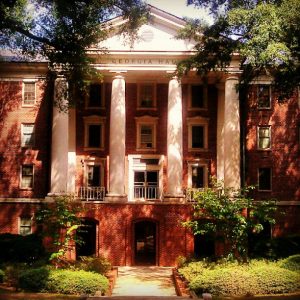 4. The Dorms—HOW (you are no doubt wondering) will Dr. Brent unearth a positive from our desultory dorm-living conditions? I admit, this is not an easy sell, but bear with me. For those of you who grumble about your room, I invite you to talk to a faculty member sometime, or perhaps even a parent, about their memories of dorm life. You probably won’t be surprised by the hardships they describe. That’s what we old folks do–make you feel bad about how easy you have it today! So ignore that part, and instead focus on what happens to their faces as they describe dorm life. Are they frustrated and bitter, to the point of distraction? Do they behave like PTSD victims and grow emotionally unstable? Or does a simpering nostalgia overtake their countenance, as if to say ah those were the good-ole days! When I was at Furman, the piss and vomit-stained hall carpet was enough to turn your stomach, but now it’s a bookmark to help me re-locate some of my dearest memories. Our current students have a few years before they, like me, seek out the world of their memories, but you’re never too young to question the severity of your hardship. I submit that a far more important priority should be an atmosphere of belonging and interaction. Toward these ends, PC’s dorms are ideally suited. None of them are located more than a half mile from an academic building and virtually all students live in them. After a year at PC, you recognize virtually everyone in this community; you feel a part of something big and energetic, even if somewhat shabby and tattered at the seams. If you have an idea about how to make PC a better place, odds are extremely high that you will be granted a leadership role in making it happen. This atmosphere is unique, and a significant contributing factor is the layout of living quarters.
4. The Dorms—HOW (you are no doubt wondering) will Dr. Brent unearth a positive from our desultory dorm-living conditions? I admit, this is not an easy sell, but bear with me. For those of you who grumble about your room, I invite you to talk to a faculty member sometime, or perhaps even a parent, about their memories of dorm life. You probably won’t be surprised by the hardships they describe. That’s what we old folks do–make you feel bad about how easy you have it today! So ignore that part, and instead focus on what happens to their faces as they describe dorm life. Are they frustrated and bitter, to the point of distraction? Do they behave like PTSD victims and grow emotionally unstable? Or does a simpering nostalgia overtake their countenance, as if to say ah those were the good-ole days! When I was at Furman, the piss and vomit-stained hall carpet was enough to turn your stomach, but now it’s a bookmark to help me re-locate some of my dearest memories. Our current students have a few years before they, like me, seek out the world of their memories, but you’re never too young to question the severity of your hardship. I submit that a far more important priority should be an atmosphere of belonging and interaction. Toward these ends, PC’s dorms are ideally suited. None of them are located more than a half mile from an academic building and virtually all students live in them. After a year at PC, you recognize virtually everyone in this community; you feel a part of something big and energetic, even if somewhat shabby and tattered at the seams. If you have an idea about how to make PC a better place, odds are extremely high that you will be granted a leadership role in making it happen. This atmosphere is unique, and a significant contributing factor is the layout of living quarters.
 5. The Arts—Many divisions of PC produce high-quality work on a very tight budget, but for my money PC’s Fine Arts take first place. I’ve attended two other universities with far bigger programs in music, art and theater, both presided over relatively stable budgets, yet neither of them produced the kind of quality work that I see here at PC. Whether it’s the Christmas Show How Sweet the Sound, the Senior Art Exhibit, the play Searching for Higher Ground, an exhibit of local artists, a pep-band rendition of We Will Rock You, or an Open-Mike recitation of student poetry, our artists show an uncanny dedication to craft. In many ways, we offer a thriving artistic colony, where talent attracts and shapes talent. Most of the time students recognize and appreciate this culture. But they often do so only after they graduate.
5. The Arts—Many divisions of PC produce high-quality work on a very tight budget, but for my money PC’s Fine Arts take first place. I’ve attended two other universities with far bigger programs in music, art and theater, both presided over relatively stable budgets, yet neither of them produced the kind of quality work that I see here at PC. Whether it’s the Christmas Show How Sweet the Sound, the Senior Art Exhibit, the play Searching for Higher Ground, an exhibit of local artists, a pep-band rendition of We Will Rock You, or an Open-Mike recitation of student poetry, our artists show an uncanny dedication to craft. In many ways, we offer a thriving artistic colony, where talent attracts and shapes talent. Most of the time students recognize and appreciate this culture. But they often do so only after they graduate.
6. Service—We all complain about the remoteness of PC, the fact that there’s nothing to do because we are not located in a major city. But given that our core mission has always involved Service (dum vivimus servimus), our location might offer yet another hidden boon. Laurens County, after all, is rich in service opportunities, and as a result PC will always have a fertile backyard for fulfilling its mission. To our own credit, we don’t ignore those opportunities, but instead throw ourselves wholeheartedly into fundraising, tutoring, big-brothering, Special-Olympicsing, and CHAMPSing. We volunteer at our hospitals, at our homes for the disabled, at our hospice care and retirement communities. We staff our local soup kitchens, we build Habitat Homes. We coordinate with local church initiatives, we sponsor book drives, we collect clothes, we distribute Christmas gifts. Those of us who do these things never feel that we do enough; for us, “To Serve” and “To Learn” are cognates that testify to a meaningful kind of life. We are thankful for the opportunities and rank it top of the list of things that make PC special. Which leads to my next point…
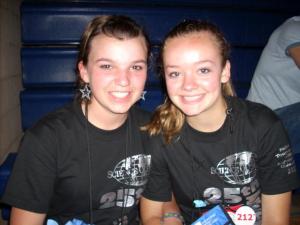 7. Community—While the economic challenges in our community are everywhere for anyone to see, our extraordinary accomplishments often go unnoticed. But they NEED to be noticed because so often they are achieved against incredible odds. Take for instance our local schools. Laurens County probably has the second highest illiteracy rate of one of the more illiterate states in our country. Within our county teacher pay is at the lowest of the low, which makes it very difficult to recruit good teachers. In spite of these odds, a lot of evidence suggests that we do! Point 1: Superintendent of Education Mick Zais singled out District 56 last month for exceeding expectations: “Poor kids can learn. Poverty is a factor, but it is not an excuse. District 56 demonstrates that better than any other district in the state.” Leaving aside Zais’s politicking (who claims that poverty is an excuse???), we can nevertheless celebrate his point that our district does remarkably well with very modest resources. Point 2: If you’ve never heard of Bell Street Middle School’s Science Olympiad Team, it’s high-time you did some research. They have racked up ELEVEN straight championships in the state competition. For eleven years they have competed in the national competition, and every year they finish a little higher in the national competition—last year 37th in the nation! How is this possible, you may be asking? The answer lies in an unbelievably generous core of intellectual volunteers, many of whom are employed at PC. The culture of Olympiad curiosity is contagious. Many generations of District-56 kids have caught it and passed it on. As a result, Clinton High School’s Team is now state champs. Those kids have gone on to college, some are here at PC. For this year’s sixth grade class, Bell Street has always been state champions, and all of us indirectly or directly have played a role in that life-changing pride.
7. Community—While the economic challenges in our community are everywhere for anyone to see, our extraordinary accomplishments often go unnoticed. But they NEED to be noticed because so often they are achieved against incredible odds. Take for instance our local schools. Laurens County probably has the second highest illiteracy rate of one of the more illiterate states in our country. Within our county teacher pay is at the lowest of the low, which makes it very difficult to recruit good teachers. In spite of these odds, a lot of evidence suggests that we do! Point 1: Superintendent of Education Mick Zais singled out District 56 last month for exceeding expectations: “Poor kids can learn. Poverty is a factor, but it is not an excuse. District 56 demonstrates that better than any other district in the state.” Leaving aside Zais’s politicking (who claims that poverty is an excuse???), we can nevertheless celebrate his point that our district does remarkably well with very modest resources. Point 2: If you’ve never heard of Bell Street Middle School’s Science Olympiad Team, it’s high-time you did some research. They have racked up ELEVEN straight championships in the state competition. For eleven years they have competed in the national competition, and every year they finish a little higher in the national competition—last year 37th in the nation! How is this possible, you may be asking? The answer lies in an unbelievably generous core of intellectual volunteers, many of whom are employed at PC. The culture of Olympiad curiosity is contagious. Many generations of District-56 kids have caught it and passed it on. As a result, Clinton High School’s Team is now state champs. Those kids have gone on to college, some are here at PC. For this year’s sixth grade class, Bell Street has always been state champions, and all of us indirectly or directly have played a role in that life-changing pride.
8. Preparation (of graduates)—More than ever before, colleges today are asked to demonstrate the worth of their degree by the kinds of jobs their students will obtain. The simplicity of this formula – rigorous academic major + effort + $$$ = lucrative employment – is intoxicating, but also misleading. It assumes that education is strictly vocational, that your first job is your only job, that a lucrative job leads to happiness, and no doubt many other fallacies. As someone who came from a small liberal-arts college, I could testify to the numerous intangible benefits of the liberal arts model. Instead, I have one important message for current students: you’re gonna get a good job, and one that you like, too. Our office of Career Programs has the stats to prove it. They’ll tell you that 25-30% of our students get into graduate school, 65-70% have found a job within their first year, and a staggering 92% claim PC prepared them for their next objective. To be fair, the task of showing the relevance of an English Major to a marketing position is no easy task. But you didn’t come to PC to make your life easy! So as you’re making the difficult transition, remember that we have one heck of a Career Services Office that wants to help, to say nothing of the faculty and alumni that are there for you too.
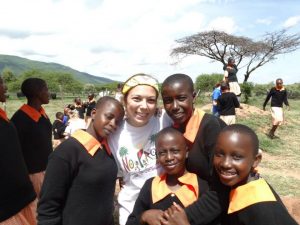 9. Travel—When I first arrived at PC, people talked a lot about the PC bubble that insulated and sheltered us from the world. Since then our campus has internationalized rather dramatically, thanks to the Confucius Institute and a vibrant Office of International Programs. Students from abroad share food, music, customs, and holidays with our community, and our own students are heading overseas in record numbers, whether through short-term trips sponsored by faculty or through semester-length excursions to foreign universities. Many factors have contributed to the change, but perhaps none as significant as our Office of International Programs, which sets up university exchanges that make travel more affordable. As someone who studied abroad in college, I hope that student readers will take away two points from this paragraph. 1) Study Abroad changed my life and directed me toward a very satisfying career; and 2) in 2013 dollars, I probably paid about double what you would have to pay to study abroad. It’ll never be as cheap for you to travel, and it just might change your life.
9. Travel—When I first arrived at PC, people talked a lot about the PC bubble that insulated and sheltered us from the world. Since then our campus has internationalized rather dramatically, thanks to the Confucius Institute and a vibrant Office of International Programs. Students from abroad share food, music, customs, and holidays with our community, and our own students are heading overseas in record numbers, whether through short-term trips sponsored by faculty or through semester-length excursions to foreign universities. Many factors have contributed to the change, but perhaps none as significant as our Office of International Programs, which sets up university exchanges that make travel more affordable. As someone who studied abroad in college, I hope that student readers will take away two points from this paragraph. 1) Study Abroad changed my life and directed me toward a very satisfying career; and 2) in 2013 dollars, I probably paid about double what you would have to pay to study abroad. It’ll never be as cheap for you to travel, and it just might change your life.
10. Classes: Of my top ten reasons to love PC, this one is perhaps the least controversial, yet even PC’s classes have suffered some recent setbacks. Students struggle to get into the courses they want or need. The college uses a labyrinthine course schedule that takes roughly three of your four years to master. And most recently, the college has decided to price gouge those who take more than 17.5 hours. All of these legitimate complaints might lead students to question whether they chose the right college; so let me offer my own attempt at a resounding Yes, you did! First, teaching matters so much at this place. Those who really care about teaching find their way to PC. It would be great if this paragraph could distill down some basic methods that all professors use, but unfortunately, the methods are quite different. Dr. Beasley’s Calc and Analytic Geometry is a river bed of honed teaching practices, but one that is entirely different from Dr. Crary’s Latin American Art. If you’ve never taken Dr. Nelson’s Military History course, you’ve missed a transformational experience. The same goes for Dr. Hobbie’s Christian Doctrine, Dr. Ingram’s African American Politics, Dr. Gearheart’s Physical Chemistry, and Dr. Inman’s Microbiology. If you’ve never experienced the sourdough of race and shame that informs Dr. McGehee’s Southern Studies, then you’ve been living on Wonder Bread. This list can – and should – go on, but it’s suggestive power will simply have to do. Other institutions offer comparable courses, but the experiences created by our faculty are irreplaceable. I know because many of my best teaching strategies were stolen from them.
Like everyone else, I lose track of the little miracles that happen at this place every day, but we have a responsibility celebrate them, to share them, and to dust them off from time to time. In spite of the barrage of petty annoyances, PC is a wonderful place to live and learn. If I’ve been persuasive at all, then I leave you with an assignment: Click “Post Comment” below and share your own favorite aspect of PC. And thanks for reading.

